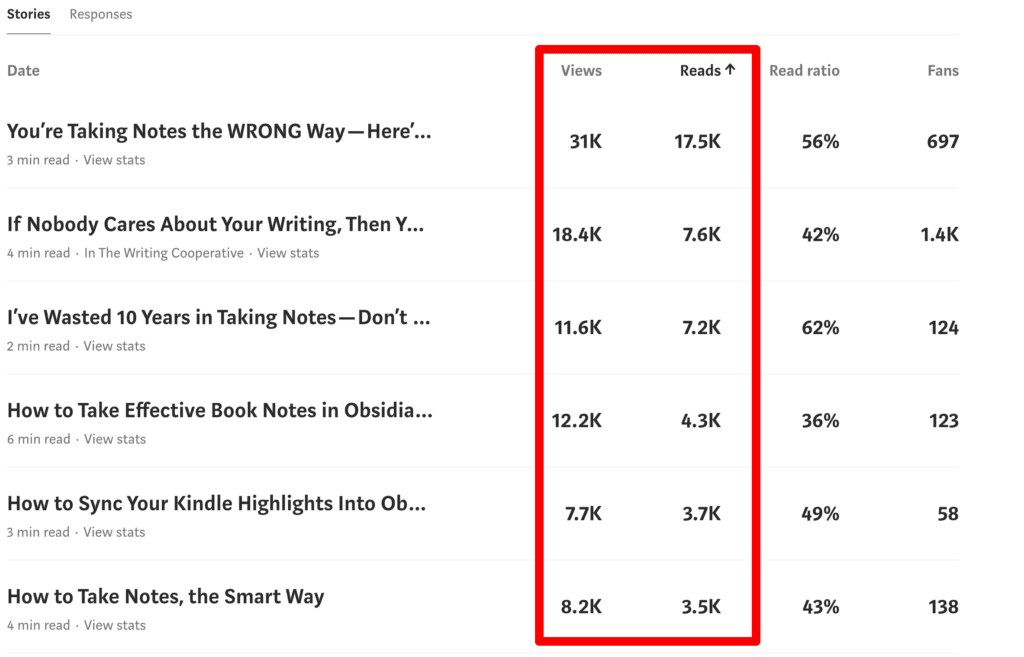Good News On Selecting A Data Appending Service
Wiki Article
What Do I Need To Consider When Buying The Hematologist Email List?
To ensure that your hematologist's list is effective, pertinent and accurate, as well as in compliance to the law, you have to pay attention to several important factors. The most important considerations are: 1. Quality of data and accuracy
Source of Information Verify that the email list providers have reliable sources. For instance, you can confirm that they use professional directories (such as medical databases), or verified opt-ins from hematologists. The credibility of a list can be judged by how accurately contacts were collected.
Verification and Updates: Ask what the provider's data verification procedure. Verify email addresses to get rid of invalid or invalid addresses. Since healthcare professionals are likely to change jobs and even institutions, it is essential that the list be frequently updated.
Segmentation of the List: The list needs to be segmented by subspecialties (e.g. pediatric hematology or oncology) and years of experience and affiliation with a hospital. A well-segregated list helps you to target your efforts more effectively.
2. Legal Regulations
Data Privacy Laws : Ensure your list is compliant with all relevant laws regarding data privacy including the California Consumer Privacy Act, General Data Protection Regulation, in Europe or the General Data Protection Regulation, in the U.S. This means that email addresses are only obtained after consent has been given.
CANSPAM Act: in the U.S.a, check whether your email lists are in compliance with the CANSPAM Act. It governs commercial electronic communications. Non-compliance can lead to penalties, and your emails could be flagged as spam.
Opt-in Consent: The list of email recipients should only contain hematologists who have specifically consented to receive email from a third party. Unsolicited email messages sent to patients with no consent could result in lower engagement and legal problems.
3. Provider Reputation
Reputable Provider: Research the reputation of the provider on the list. Check for testimonials, reviews, and case studies to ensure the reliability of the business. A company with a proven track record is more likely to supply top-quality information that is compliant.
Transparency: Choose a provider which is clear about the source of data and from where the data was collected. Companies that are unclear and unclear about how they collect data should be avoided.
Customer Support - It is essential to choose a company who offers excellent customer service. Strong support is important if you have questions or require assistance with technical issues, compliance issues or list customization.
4. Cost as well as Return on Investment (ROI)
Pricing Models: Consider the pricing models offered, including whether they are pay-percontact, flat rate, or subscription. Make sure the price aligns with the potential return on investment. Balance the list quality and volume with your budget.
Policy on Refunds or Replacements: A reputable service provider will provide refunds or replacements in the event of inactive or invalid email addresses. Clarify terms of policy before purchasing.
Value for Money Comparing list options like segmentation choices and data accuracy warranties with the costs. The list with the lowest price does not ensure the highest value in terms of value if it is based on poor data quality.
5. Data ownership and usage
Single Use in contrast to. Multiple Use: Be sure to understand the terms and conditions that apply to making use of the email list. Certain providers allow only the use of their list for one particular campaign, while other providers offer unlimited usage rights.
Exclusive vs. Lists shared: Determine if the list is exclusive to your company or shared with other buyers. Exclusive lists tend to have better engagement because the contacts are less exposed to emails from marketing.
6. Data Format and Integration
Compatibility: The email list must be compatible with CRM or email tools. The list should be available in common formats like CSV or Excel to ensure seamless integration.
Simple to Use: See how easy the list is to manage. Lists with a lot of data that are difficult to work with or segment will reduce the effectiveness and effectiveness of your campaign.
7. Ethical aspects
Relevance of your email outreach to Hematologists. Be sure that your email outreach is pertinent to Hematologists. Sending them content which doesn't align to their expertise may cause poor engagement and could negatively affect your reputation.
Avoiding Spam Tips: Take care not to flood the recipients with too many emails. If you send out too many emails, it can damage the reputation of your email sender.
Also, you can read our conclusion.
The purchase of a hematologist's email list can be a powerful method of targeted marketing, but it requires careful evaluation. Take into consideration the accuracy of the data and reputation of the company, and the compliance with privacy laws to ensure you get a quality list. Prioritizing segmentation and legal compliance will increase your return on investment while maintaining a positive reputation for your brand. Have a look at the best hematologists email list for site advice.

What Are The Factors I Should Be Thinking About Before Buying An Appending Data?
Careful consideration of the data appending services is vital. You must consider multiple factors in order to make sure that the appending service will enhance the quality and accuracy of your data while maintaining ethical, legal, and compliance standards. Data appending refers to the process of enriching your existing database by adding missing or additional details, like emails, phone numbers, and demographics. Below are a few important factors to be considered when purchasing data appending services: 1. Accuracy and Quality of Data
Data source: Make sure whether the appending service provider is reliable and top-quality sources, such as verified databases or public records. The most reliable providers typically collect information from reliable sources, and ensure that the information appended is both accurate and relevant.
Verification Process: Check if the provider has a thorough procedure for validating and verifying the data appended. This will help you ensure accuracy of your data, current and relevant. As part of the service provided by your provider you can expect frequent updates and data cleansing.
Match Rate: Different providers have different match rates. This refers to how many of your records can be enhanced with new data. Try to find a equilibrium between data accuracy and a high rate of matching.
Customization: Make sure that the provider provides customizable solutions for data append. It is possible to add different types data, like firmographic or demographic information and behavioral data, as well as contact information.
2. Data Security and Privacy
Conformity with regulations - Data appending is a service that involves handling sensitive personal information. It is therefore crucial to ensure compliance with privacy laws such as the California Consumer Privacy Act and General Data Protection Regulation. The data that is appended has to be collected, used, and processed in a legal manner to be protected from fines.
Consent Management - Ensure the information is provided by individuals that have consented explicitly to the sharing of their personal data. Avoid data sources based on suspect practices, or those that compromise the privacy of the users. This could lead to ethical and legal issues.
Data Security. Check if the service takes stringent measures to protect your data as well as the new data. Included in this are protocols for secure data transfer encryption, access control as well as other security measures.
3. Provider Reputation
Reputable Vendor: Choose a provider with a strong reputation for providing exact and compliant data appending services. You can assess their previous results by reading the testimonials, case studies and reviews. A vendor that has been around for some time is more likely to provide top-quality services and adhere to the laws.
Industry Specialization: Some companies specialize in particular industries such as healthcare and finance. Choose a company with the expertise and knowledge in the specific area you are in if are a business in a similar market. It is possible that they provide customized solutions that are more suited to the specific requirements of your business.
4. Cost as well as Return on Investment (ROI).
Pricing Models. Service providers that append data offer a range of pricing options. These include price per record. Make sure you are aware of the price structure and how it is aligned with your budget. Avoid extremely low-cost solutions which could be an indication of poor data quality.
Determine your ROI potential by incorporating data. A good service should improve the engagement of customers, conversion rates and marketing performance. Consider comparing the price of the service with the anticipated benefits of having more relevant, enriched data.
5. Data Types and Appending Options
Take note of the types of information you will need to be included in your database. Common types include:
Email addresses are vital for marketing via email.
Phone numbers are essential for sales outreach or customer service.
Demographic data are beneficial for marketing segmentation and targetting.
Data on firmographics is essential for B2B firms that want to target businesses based upon figures for employee numbers, revenue or industry.
Social Media profiles: A few providers allow you to add your social media handles. This is a great option for social and digital marketing.
6. Data Integration and Format
Compatibility. Ensure data delivered is compatible with CRM software you're using, the marketing automation program or any other tool you may use. CSV, Excel and API integration should be standard formats for data import.
Data Cleansing and Enrichment Services: As part of the appending service A reputable company will also provide data cleansing services. Appending involves the correction of inaccurate data and duplicates, and the elimination of old records. Data enrichment is more than just the addition of new information. It can also enhance the overall quality of your database.
7. Ethical Questions
Transparency. Providers must be open and transparent about how and where the data is collected. Data appending companies that adhere to ethical guidelines will have policies regarding the sources of data as well as its use.
Effect on Engagement: Appending contact information such as phone numbers and emails shouldn't lead users to engage in ad-hoc unwanted, intrusive or invasive methods. Use appended data responsibly. Follow best practices for reaching out to consumers, offer opt-out options, and ensure privacy for consumers.
Conclusion
When selecting companies that can be trusted with data, consider the following: data quality as well as legal compliance and provider's reputation. Select services that provide secure, validated data that complies privacy regulations including GDPR as well as CCPA. Make sure that the data appended will work with your existing system and take into account the ROI long-term of investing in accurate information. By selecting the right appending service and focus your efforts on ethical standards, you can greatly enhance your marketing strategies and also your business's performance. Follow the expert data appending services for site advice.
